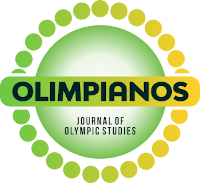Running in nature as an important element of lifestyle medicine: motivations and environmental attitudes of modern runners and sports tourists
Keywords:
running, motivations, nature, life satisfaction, sports tourismAbstract
The aim of the study is to identify the motivations and attitudes of participants of running events, taking place outside the city, and their socio-demographic profile. For this purpose, a face-to-face interview was conducted with 107 participants of the Warta Challenge running event held in the Wielkopolska Voivodeship. The results of the study revealed that mass running events, organized outside a large city, are most often attended by young and middle-aged men, from large cities, with higher education and professionally active. Participants of the Warta Challenge regularly take part in running events. It motivates them to participate in the marathon, improves the quality of their lives, not so much due to the sports results achieved, but due to contact with nature and with other people. Over 80% of respondents prefer running outside the city. They mostly appreciate lack of crowds at their running routes, surrounded by nature.
Downloads
References
Marry LC, Ely MR. Effect of air pollution on marathon running performance. Med. sci. Sports Exerc. 2010;42:585-591.
Weichenthal S, Hatzopoulou M, Goldberg M. Exposure to traffic-related air pollution during physical activity and acute changes in blood pressure, autonomic and micro-vascular function in women: A cross-over study. Part. Fiber Toxicol. 2014;11:70.
World Tourism Organization & United Nations Environment Program. Guidelines: Development of National Parks and Protected Areas for Tourism. 1992.
Malchrowicz-Mosko E, Botikova Z, Poczta J. Because we don't want to run in Smog: problems with the sustainable management of sport event tourism in protected areas (A case study of National Parks in Poland and Slovakia). Sustainability. 2019;11(2):325.
Bodin M, Hartig T. Does the outdoor environment matter for psychological restoration gained through running? Psycho. Sports Exerc. 2003;4:141-153.
Nowak F. Mass sports and recreation events as effective instruments of health-oriented education. Journal of Physical Education and Health. 2012;2(3):31-37.
Brymer E, Gray T. Dancing with nature: rhythm and harmony in extreme sport participation. J. Adventure Educ. Outdoor Learning. 2009;9:135-149.
Brymer E, Gray T. Developing an intimate “relationship” with nature through extreme sports participation. Leisure/Loisir. 2011;34:361-374.
Gladwell W, Brown KD, Wood C. The great outdoors: how a green exercise environment can benefit all. Extrem. Physiol. Med. 2013;2(3):1-7.
Ólafsdóttir R et al. Running wild: environmental attitudes of long-distance runners in the Icelandic Highlands, Mountain Research and Development. 2021;41(3):32-39.
Bodin M, Harting T. Does the outdoor environment matter for psychological restoration gained through running? Psycho. Sports Exerc. 2003;4:141-153.
Deelen I. et al. Attractive running environments for all? A cross-sectional study on physical environmental characteristics and runners’ motives and attitudes, in relation to the experience of the running environment, BMC Public Health. 2019;19:366.
Melo R, Van Rheenen D, Gammon SJ. Part I: nature sports: a unifying concept, Annals of Leisure Research. 2000;23(1):1-18.
Rozmiarek et al., Motivation and eco-attitudes among night runners during the COVID-19 Pandemic. Sustainability; 2022;14:1512.
Downloads
Published
Issue
Section
License
Copyright (c) 2024 Olimpianos - Journal of Olympic Studies

This work is licensed under a Creative Commons Attribution-NonCommercial-ShareAlike 4.0 International License.
The authors authorize others to copy and redistribute the material in any medium or format. Remix, transform, and create from the material. You may not use the material for commercial purposes.






